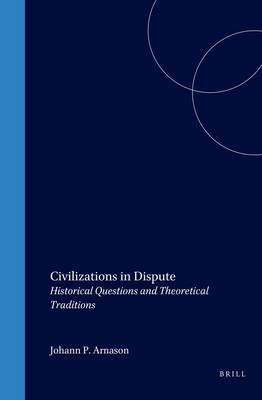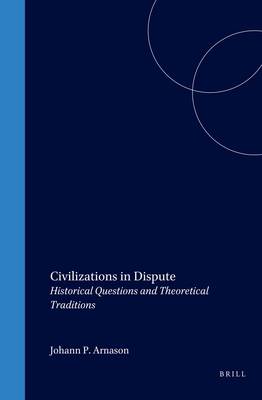
- Afhalen na 1 uur in een winkel met voorraad
- Gratis thuislevering in België vanaf € 30
- Ruim aanbod met 7 miljoen producten
- Afhalen na 1 uur in een winkel met voorraad
- Gratis thuislevering in België vanaf € 30
- Ruim aanbod met 7 miljoen producten
Zoeken
€ 152,95
+ 305 punten
Omschrijving
The growing interest in civilizations, both on the level of political controversy ("the clash of civilizations") and in the context of scholarly debates, calls for more theoretical reflection on the problems and perspectives central to this field of social inquiry. This book contains the first systematical and critical survey of classical and contemporary approaches to comparative civilizational analysis; it goes on to outline a theoretical model that draws on the work of historical sociologists as well as on comparative cultural and intellectual history. Civilizations are analyzed as multi-dimensional formations, with particular emphasis on cultural orientations, but also on the autonomous dynamics of political and economic institutions. The last chapter applies this line of argument to questions raised by critics of Eurocentrism and discusses the strengths and weaknesses of postcolonial theory.
Specificaties
Betrokkenen
- Auteur(s):
- Uitgeverij:
Inhoud
- Aantal bladzijden:
- 286
- Taal:
- Engels
- Reeks:
- Reeksnummer:
- nr. 8
Eigenschappen
- Productcode (EAN):
- 9789004132825
- Verschijningsdatum:
- 25/09/2003
- Uitvoering:
- Hardcover
- Formaat:
- Genaaid
- Afmetingen:
- 162 mm x 252 mm
- Gewicht:
- 771 g

Alleen bij Standaard Boekhandel
+ 305 punten op je klantenkaart van Standaard Boekhandel
Beoordelingen
We publiceren alleen reviews die voldoen aan de voorwaarden voor reviews. Bekijk onze voorwaarden voor reviews.








